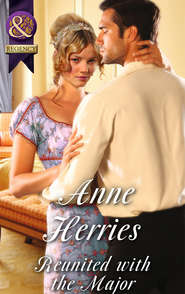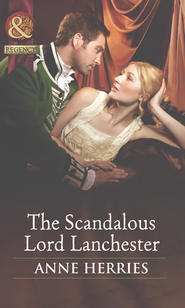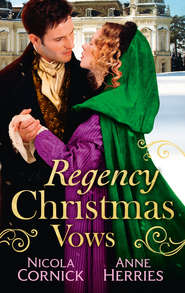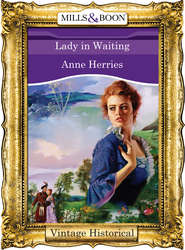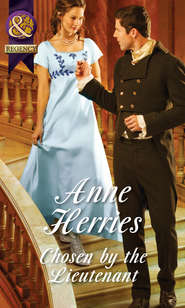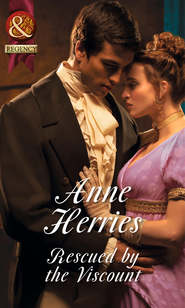По всем вопросам обращайтесь на: info@litportal.ru
(©) 2003-2024.
✖
Candlelit Christmas Kisses: Captain Moorcroft's Christmas Bride / Governess Under the Mistletoe
Автор
Год написания книги
2019
Настройки чтения
Размер шрифта
Высота строк
Поля
‘Miss Searles. You look remarkably well this evening.’
‘Mama told us before she died that we were not to wear black for her longer than a month,’ Selina said a trifle defensively. ‘We shall continue to wear grey during the day until Christmas, but we promised that a month after her death we would wear colours in the evenings.’
‘You have no need to explain yourself to me, Miss Searles,’ he replied a trifle stiffly. ‘I confess I was a little surprised to see the change, but I find it pleasant.’
‘We talked it over and decided that we would follow Mama’s wishes,’ Selina said. ‘However, when we drive out we shall continue to wear mourning so that we do not shock our neighbours. I was intending to ask you this evening if we might have the use of your uncle’s carriage and horses tomorrow, should you have no use for them. My groom will take us, as we should like to drive into the nearest town to purchase some materials and things we need to ensure that Christmas is a success.’
‘Of course you may have the carriage whenever you please. The horses are in need of some exercise, and I should take my own curricle if I wished to go visiting—which I have no intention of doing for the moment.’
‘Thank you. You are very kind. I do not wish to presume on your good nature more than necessary, sir. I am sure there must be moments when you have wished us all to the devil.’
‘There you would be wrong,’ he replied, and smiled. ‘You and your sisters have brought this house to life, Miss Searles. It will be a pleasure having you all here until after Christmas. I have not yet decided whether I shall take up residence here, but there is plenty of time for me to make up my mind next spring.’
‘Your gardens will be so beautiful in the spring, sir,’ Millie chimed in, without being asked. ‘It would be a shame to destroy something as beautiful as this house. Do you not think of all the history that has gone on here—of the people who have lived and laughed here?’
‘Millie!’ Selina and Amy spoke together in unison.
‘You really must not speak your mind so freely,’ Selina continued, her cheeks hot as she threw a look of apology at the earl. ‘You have no idea of what you are saying.’
‘Miss Millie meant no offence,’ Henry said. ‘Robert knows that, Miss Searles.’
‘Of course.’ The Earl inclined his head to them, though the look in his eyes was distinctly chilly. ‘It is precisely because I think of the people who lived and died here and their unhappiness that I have thought of pulling the house down and building again.’
‘But surely dying is part of life?’ Millie said impulsively. ‘I did not mean just your uncle, sir—and I beg your pardon if I have distressed you. There must have been many generations of your family, and they cannot all have been unhappy. Your uncle must have been happy here once? Mama was unhappy towards the end, but she told us to remember the good times—and that is what we do.’
‘That is enough,’ Selina said sternly. ‘If you cannot behave you may go to your room, Millie. I shall not tell you to curb your tongue again. We are guests here, and you will remember that, if you please.’
Millie’s cheeks went bright red, and she looked as if she might burst into tears in the ensuing silence.
‘No, do not scold her,’ the earl said after a moment. ‘She is quite right, and I have been a fool to dwell on my uncle’s unhappiness. What happened to him was unfortunate, but there was a time when this was a happy house.’
‘And shall be again,’ Henry said. ‘Ah, I think that is the dinner gong. Shall we take our places at table? Miss Millie, will you honour me by sitting beside me, please? I should like to talk to you about our self-appointed task in the library.’
‘And what is that, pray?’ the earl asked as Millie went silently to her allotted place. ‘If Nor has embroiled you in one of his schemes, Miss Millie, you must not let him become a slave driver—for I promise you he will if given a free hand.’
‘Some chance I have of keeping you to your desk if you choose to go riding or visiting instead,’ Henry said, and gave him an approving nod. He smiled at Selina, as if reassuring her. ‘Millie discovered that I was embarking on the reorganisation of the library, and she nobly offered to assist me.’
‘She will be in her heaven,’ Amy said, and smiled at him. ‘It was kind of you to let her help, sir, because she lives for books. Papa indulged her, but Mama was afraid she might ruin her eyes.’
‘Oh, I do not think a love of books ever hurt anyone,’ Henry said. ‘If you need an escort into Long Melford, I should be glad to accompany you tomorrow. I think you will find it is the nearest town, and it has several shops that you will find of interest—though if you cannot find what you need, I should be glad to send to London for you.’
‘How kind you are,’ Selina said, recovering her tongue. ‘I think our needs are fairly simple, and most haberdashers will be able to supply us with silks and ribbons and some lace. We already have the cloth we require. A good general merchant should supply the other goods we need—almonds, essence and sugar to make marchpane, dates, nuts and preserves, of course. Cook has already started on her cake, and her puddings were made before we left home. We have been using preserves we brought with us, but must now replace them.’
‘You must send your accounts to me,’ the earl said. ‘If we are to share our Christmas celebrations and other meals, I insist on paying for the supplies we need.’
‘I should not dream …’ Selina met his gaze and blushed. ‘We shall provide the things I have named, sir—perhaps you would care to see to the beef, capons, ham—even a goose or even two?’
‘Our farms will supply everything of that nature, of course. If that is your wish. And you must leave the wines to me. I imagine our guests would enjoy my uncle’s champagne and brandy. And I have some very good Italian wine on its way, which I think we shall all enjoy.’
‘That sounds perfectly acceptable,’ Selina said, and smiled, her feeling of embarrassment fading. ‘The vicar is dining with us soon, and we are to have a small family party the week after next. I hope you will join us for each occasion, both of you. It is Millie’s birthday. She will be thirteen, going on thirty-five, and I have not yet decided what she deserves as a gift.’
‘I should like a book,’ Millie said promptly. ‘If you really want to know. There was a Bestiary I liked in Papa’s library, but that would be too expensive, Selina, so I do not mind what you give me.’
‘Well, you will just have to wait and see, miss,’ Selina said, and sent her sister a forgiving smile.
Looking round at the group about the table, she breathed a sigh of relief. Millie’s outspokenness had caused some embarrassment, but the earl seemed to have recovered his equilibrium and had actually gone out of his way to make her sister feel less uncomfortable. As for Mr Norton, he was kindness itself—and if the way he looked at Amy was an indication of his feelings, he already cared for her.
Selina noticed that the two of them were talking animatedly. Millie was butting in now and then, but not as often as she normally did. She glanced at the earl and saw that he was looking at her in an oddly thoughtful way. A little tingle started at the nape of her neck as she saw his expression. What was he thinking? Was it possible that he had remembered her? Surely not! That kiss must have been just a small, unimportant incident to him—as indeed it ought to have been to her.
Had she been given the season her mama had intended, she would almost certainly have married. Had there been no loss of Papa’s fortune and no suicide, she would not have spent so much time at home, caring for her delicate mama and her sisters. The romantic image she’d had of that moonlit garden should have faded. She should have fallen in love again …
She gave herself a mental shake. Had she fallen in love with Robert Moorcroft that night? Yes, of course she had. Selina had never truly understood what her feelings were—it was just an enchanted moment in her young life. That was it, of course. She had been so young—sixteen, innocent and impressionable—and Captain Moorcroft had been so handsome and bold, several years older. His kiss had inflamed her passions and captured her heart.
He was still a handsome man, but that boldness—that devil-may-care manner that had caused her to lose her senses in a madcap moment of sensual pleasure—had disappeared. Earl Banford was a different man—just as she was a different woman.
Selina was not sure whether or not she truly liked the man he had become. Surely there could be nothing left of anything either of them had felt that night? He had been drunk, and she’d been swept away on a magic carpet of enchantment. Selina was no longer that young girl. She had been foolish to allow herself even to think of that ridiculous incident—for that was all it had been, of course. Just a girl’s dream of romance, and it should be shut away like her other dreams.
When Papa had died and left them almost penniless, and Mama had become so ill, requiring Selina’s constant attention, she had put away her dreams of love and marriage. She knew now that even if she stretched her slender funds to the limit, they could barely afford for Amy to have a season, even if one of Mama’s old friends would act as her chaperone. Selina must keep her thoughts firmly fixed on the future and the position she must seek once her younger sister had found someone she could love. Amy must be given every chance. She would not be allowed to throw herself away on the first man who offered, because with her vivacity and her looks, she might aim higher than a mere baronet. Perhaps even a marquis … or an earl?
Glancing at the earl, she found his eyes disconcertingly still on her, even though her sister was laughing and making Millie and Mr Norton laugh too. No, she could not convince herself that Moorcroft, as he would have her call him, was showing any interest in Amy. Rather he was staring down the table at her, an almost pensive expression in his eyes. She could not tell if he were annoyed, bored, or merely lost in his own thoughts.
He had eaten his soup and his meat, but as the puddings were carried in, he pushed back his chair, rising to his feet and saying, ‘No, Henry, stay and finish your meal with the ladies. I have something I wish to attend to—if you will excuse me?’
With that he was gone. His leaving caused silence to fall once more—a silence that made Henry feel it necessary to apologise for.
‘It happens sometimes,’ he said. ‘You must forgive Robert, Miss Searles. At times he feels that he cannot bear to see others happy. I daresay he was remembering … something that happened when we were in Spain. It haunts him still. You must not be distressed, for he did not mean to be rude.’
‘There is no need to apologise, sir,’ Selina said, and smiled. ‘I daresay we can be rather noisy at times.’
‘Would you consider calling me Henry when we are together like this?’ he asked. ‘I feel myself family already, and I wish to be of service to you in whatever way I can.’
‘Thank you, Henry,’ Selina said, and smiled again. ‘I think I should like some pudding. After all, we should not let all Cook’s work go to waste, should we?’
Alone in a garden sadly without the benefit of a summer moon and distinctly chilly, Robert wondered what had made him leave the company so abruptly. He had been in the habit of taking solitary walks at night in Italy, where it was very much warmer, and had come out without his greatcoat. If he were not much mistaken, winter had taken a turn for the worse and they would soon have snow.
Watching Miss Searles with her family, he’d suddenly felt like an outsider, shut out from the warmth and the intimacy of the group. Henry was obviously accepted by them as family, and he had taken on the role with evident pleasure. Always honest, he’d already admitted to Robert that his feelings were engaged, and that should Miss Amy show any preference for his company, he would offer for her, even if his chance of her accepting was slim.
She would be a fool to turn him down; although, given her chance to shine in society, the beautiful Amy Searles would undoubtedly become the rage—just as her sister had that night in Bath. The pity of it was that because of their straitened circumstances, she would probably never get her moment of glory—which was a shame for her and her family. However, should Nor propose and be refused, Robert’s sympathy might be transferred to his friend. Henry’s scars were not something that could be hidden away or forgotten; he must live with them for the rest of his life. Robert could sometimes forget his pain—at least for a while.
He had forgotten for a short time at dinner. Watching, rather than participating in the lively banter, he had felt happy for a while—and then something had brought the memory to mind, and he’d felt guilty that he was alive and enjoying himself. How could he be happy when Juanita lay in her grave—murdered by his men? Men he ought to have taught to behave in a civilised manner even under the heat of battle. All that beauty and passion gone for ever, only her pain a living memory that haunted him day and night. And he was to blame, because he had not controlled his men.
After so many years the pain should have dulled. Indeed, he hadn’t been aware of it for most of the day, with his thoughts preoccupied with the house, the estate—and the intriguing family who had settled in his home. They were like cuckoos in a blackbird’s nest, and if he’d had any sense, he would have found an empty house on the estate or in the village and moved them there before he arrived.
It was too late now to make them move before Christmas. Henry was enjoying life for the first time in years, and he—he had no need to be sucked into their enchanted circle. Good grief, the house was large enough. If he chose he could shut himself away in his wing and never see them …
The trouble was that he was like a moth being drawn to the flame. He wanted the warmth of their charm and beauty. His lonely soul was craving something he had lost so long ago. But his instinct told him that if he drew near, he would singe his wings.
He could never put himself at risk of such pain again. For a moment he could hear Juanita’s screams, and he put his hands to his ears, trying to block out the sound. But it was inside his head and could never be shut out.






